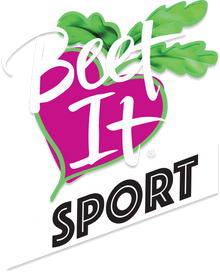
How Beetroot Juice Supports Female Runners' VO₂ Max
Can something as simple as a glass of beetroot juice give female runners a competitive edge? The answer is yes, and science is backing it up. A recent clinical trial...
Can something as simple as a glass of beetroot juice give female runners a competitive edge? The answer is yes, and science is backing it up. A recent clinical trial conducted in Latvia revealed that beetroot juice, rich in natural nitrates, increased VO₂ max by nearly 5% in female endurance athletes.
VO₂ max, or maximal oxygen uptake, measures the body’s ability to use oxygen during intense exercise. A higher VO₂ max translates to better endurance and performance. For female runners, optimizing VO₂ max is key to staying ahead.
Beetroot juice has long been used in endurance sports, but this new focus on female physiology opens the door to personalized, plant-powered performance.
Let’s dive into how beetroot juice enhances aerobic capacity, supports female runners, and why it's time to add this vibrant elixir to your training toolkit.
Understanding VO₂ Max and Female Athletic Performance
VO₂ max is a crucial marker of cardiovascular fitness. It reflects how efficiently your lungs, heart, and muscles work together during exercise. The higher your VO₂ max, the more oxygen your body can consume—and the longer and harder you can run.
For female athletes, improving VO₂ max can be challenging due to biological differences, such as lower hemoglobin levels and hormonal fluctuations. That’s where beetroot juice steps in.
Beets for Oxygen: How Nitrates Work
Beets are rich in dietary nitrates. When consumed, these convert to nitric oxide (NO) in the body. NO is a potent molecule that relaxes blood vessels, lowers blood pressure, and improves blood flow. This leads to more oxygen being delivered to the muscles.
Better oxygen means better endurance.
In short, more beet juice equals more oxygen equals more power.
Groundbreaking Research: The Latvian Study on Women

In January 2025, researchers in Latvia published a game-changing study in the journal Nutrients. The goal? To investigate how beetroot juice affects aerobic performance in women.
Study Design Highlights
- Participants: 18 healthy female endurance athletes
- Age Range: 22.9 ± 5.6 years
- Protocol: Double-blind, placebo-controlled
- Supplement: 50 mL of beetroot juice concentrate (~6.2 mmol nitrate)
- Testing: VO₂ max and cardiopulmonary function measured via CPET (Cardiopulmonary Exercise Test)
Key Findings
- VO₂ max increased by 4.82% in the beetroot group.
- Improved ventilatory efficiency (VE/VO₂ and VE/VCO₂).
- Lower heart rates during peak performance.
These results were significant. Unlike previous research largely focused on men, this study spotlights the unique physiological needs of women.
"Beetroot juice consumption can reduce fatigue during prolonged exercise by improving oxygen utilization and energy efficiency."
1. Study Used In-House Standardized Beetroot Juice
To ensure accurate dosing and reliable results, researchers developed their own beetroot juice formula in partnership with a scientific institute in Riga. This in-house version delivered precisely 6.2 mmol of nitrate per 50 mL serving, allowing for consistent nitrate levels.
Many commercial beetroot juices vary significantly in nitrate concentration. To avoid this inconsistency, the Latvian team also created a nitrate-depleted placebo version, thereby ensuring the study’s integrity and maintaining its double-blind design.
This careful preparation underscores the importance of standardization in sports nutrition research, particularly when measuring performance variables such as VO₂ max and ventilatory efficiency.
2. Researchers Found Striking Improvement in VO₂ Max

The most significant outcome of the trial was a 4.82% increase in VO₂ max in the beetroot juice group. This improvement, measured from 35.24 to 36.94 mL· min¹ · kg¹—is remarkable, especially considering it resulted from a single 50 mL dose taken 2.5 hours before the exercise test.
In contrast, participants who consumed the placebo showed a slight decrease in their VO₂ max, reinforcing the effectiveness of the nitrate-rich formulation. Improvements were also seen in ventilatory efficiency and heart rate performance, suggesting a holistic enhancement in aerobic capacity.
3. Redressing the Gender Imbalance in Research
Historically, the majority of sports nutrition research has focused on male participants, leaving a critical gap in evidence-based recommendations for women. This Latvian study aimed to correct that imbalance by centering its design around healthy female endurance athletes.
By doing so, the researchers not only advanced scientific understanding but also set a precedent for future studies. Factors such as hormonal fluctuations, metabolic variations, and menstrual cycles must be considered when evaluating the outcomes of supplementation in women.
The authors called for more research to explore long-term nitrate supplementation, optimal dosage cycles, and how menstrual phases affect VO₂ max responses.
The Link Between Beetroot Juice and Endurance
Beetroot juice and endurance go hand in hand. Whether you're running marathons, sprinting, or cycling long distances, oxygen efficiency is everything.
Beet Juice and Cycling: A Natural Combo
Cyclists have long relied on beetroot juice to sustain energy over long hauls. Studies show that beet juice can:
- Increase time to exhaustion
- Reduce oxygen cost during submaximal exercise
- Improve overall time-trial performance
These benefits also extend to runners, especially during tempo runs, hill workouts, and speed intervals.
Beet Juice Evolve: A New Era of Female-Centric Supplementation

With the evolution of sports science, we now understand that supplementation must consider gender differences. Hormonal cycles, iron levels, and training adaptations differ for women. Beetroot juice supplementation offers a low-risk, high-reward solution tailored to these needs.
Why You Should Try Beet It Organic Beet Juice

Beet It Organic Beet Juice is a top choice for athletes and health-conscious consumers alike. Here’s why:
- 100% Natural: Made from organic beets and a splash of pressed apple juice.
- No Nasties: No added sugar, preservatives, or artificial ingredients.
- Nutrient-Rich: High in potassium, vitamin C, and powerful antioxidants.
- Great Taste: Earthy flavor softened with apple juice for a smoother finish.
How to Enjoy It
- Morning Boost: Drink it before your morning run for a clean energy lift.
- Smoothies: Blend with bananas, berries, and yogurt.
- Breakfast Bowls: Use as a base for oat or chia bowls.
Start your day the natural way — explore the refreshing taste and real nutrition of Beet It Organic Beet Juice.
How and When to Take Beetroot Juice
To maximize performance, timing and dosage matter.
Recommended Dosage
- Standard dose: 250–300 mL of fresh beetroot juice (or 50 mL of concentrate).
- Timing: 2 to 3 hours before training or competition.
Tips for Best Results
- Cycle the intake: Use 2-3 times a week during intense training periods.
- Hydration: Drink water alongside to help absorption.
- Test it: Try during training before race day.
Beetroot juice is most effective when used consistently. Pair it with a well-balanced diet and structured training for optimal results.
Designing Your Beetroot Juice Routine
|
Component |
Recommendation |
|
Pre-race dose |
200–300 mL fresh or 50 mL concentrate, 2.5 hours before start |
|
Training routines |
Use before key sessions—tempo runs, intervals, endurance rides |
|
Recovery support |
Include daily servings on non-race days to aid muscle repair |
|
Combine wisely |
Add carbs or protein post-exercise to optimize recovery and adaptation |
|
Monitor effects |
Note differences in perceived exertion, heart rate, and oxygen uptake |
Additional Health Benefits Beyond VO₂ Max
While beetroot juice enhances performance, it also contributes to overall well-being.
Cardiovascular Support
- Helps lower blood pressure
- Improves arterial flexibility
Anti-Inflammatory Effects
- Rich in betalains and antioxidants
- Helps reduce exercise-induced muscle soreness
Cognitive Function
- Nitric oxide may support better brain function and focus
- Useful during mentally demanding training blocks
Need a clean energy boost without caffeine? Try Beet It Organic Beet Juice, packed with plant-based goodness.
Why Beetroot Juice is a Game-Changer for Female Runners
Beetroot juice is more than just a trend. It's a proven, natural supplement that improves endurance, boosts VO₂ max, and supports cardiovascular efficiency.
The Latvian study confirms what many female athletes have experienced anecdotally: beetroot juice works.
With products like Beet It Organic Beet Juice, adding nitrate-rich nutrition to your routine is easy, delicious, and effective.
Conclusion: Run Farther, Stronger, and Smarter
Beetroot juice empowers female runners to push boundaries and achieve new performance heights.
It’s science-backed, nutrient-dense, and simple to include in your routine.
Looking to energize your lifestyle the natural way? Don’t miss out on the daily benefits of Beet It Organic Beet Juice.


